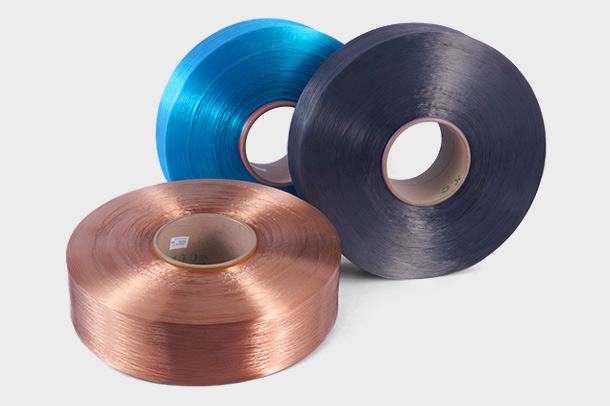Abstract:Sewing thread is the thread required for knitted clothing products. Sewing thread can be divided into three categories: ...
Sewing thread is the thread required for knitted clothing products. Sewing thread can be divided into three categories: natural fiber sewing thread, synthetic fiber sewing thread and mixed sewing thread according to the raw materials. With the development of the polyester industry, more and more pure polyester fibers are used as raw materials for sewing threads.
Polyester fiber is a kind of high-quality synthetic fiber. The suture produced by it has high strength, second only to nylon thread among all kinds of sutures, and it will not reduce the strength when wet. Its shrinkage rate is very small, and the shrinkage is less than 1% after proper shaping, so the stitches can always be sewn to maintain a flat and beautiful appearance, no shrinkage, abrasion resistance second only to nylon, low moisture regain, and good high temperature resistance , Low temperature resistance, light resistance and water resistance. Therefore, polyester thread is an extremely widely used variety, which has replaced cotton sewing thread on many occasions.
Polyester thread has a wide range of uses. It can be used to sew cotton fabrics, chemical fiber fabrics and blended fabrics, and can also be used to sew knitted outerwear. The special polyester thread is also an excellent thread for the shoe and hat leather industry.

In production and processing, polyester threads are generally divided into the following three categories:
1. Weaving yarn: Weaving yarn refers to the yarn used in processing woven fabrics, which is divided into warp yarn and weft yarn. The warp yarn used as the longitudinal yarn of the fabric has the characteristics of larger twist, higher strength and better wear resistance; the weft yarn used as the transverse yarn of the fabric has the characteristics of smaller twist, lower strength, but softness.
2. Knitting yarn: Knitting yarn is used for knitted fabrics. The yarn quality requirements are high, the twist is small, and the strength is moderate.
3. Other yarns: including stitching thread, embroidery thread, knitting thread, miscellaneous thread, etc. According to different uses, the requirements for polyester yarn are different.
